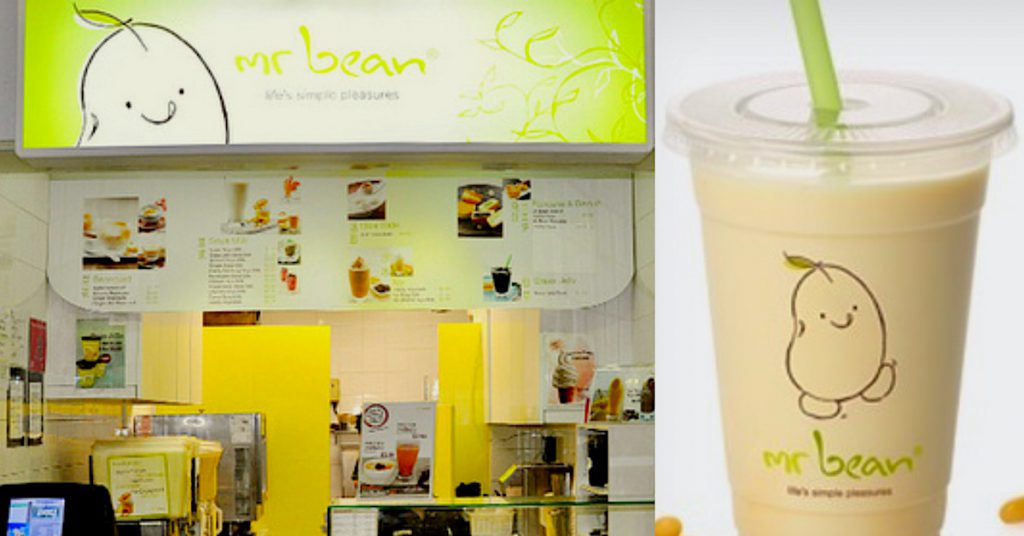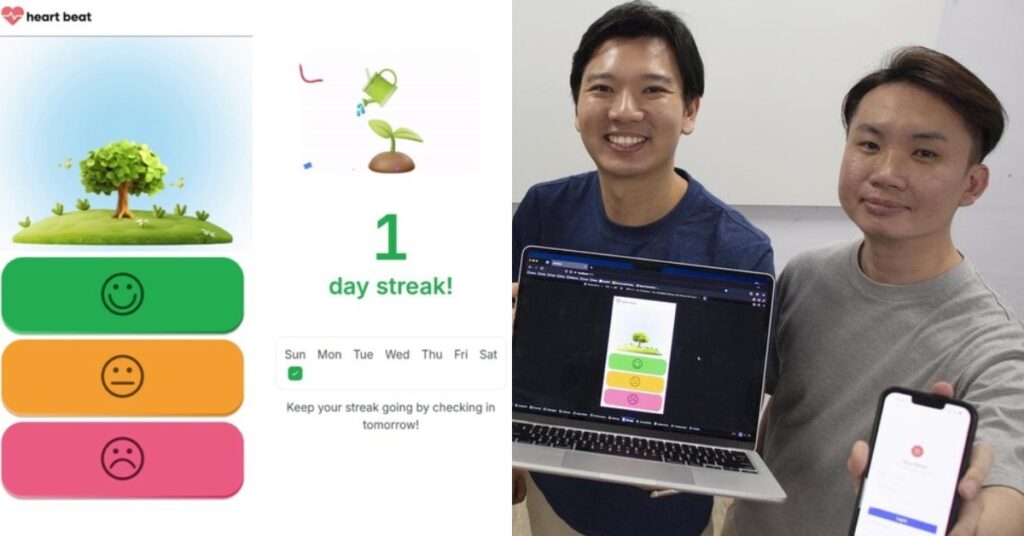It’s not an overstatement to say that soya beancurd is, and has always been, a local favourite.
This traditional Chinese dessert has withstood the test of time, refusing to drown amidst food fads like the Korean ‘bingsu’ (shaved ice) and acai bowls.
Similarly, Mr Bean – famous for its soya beverages and desserts in Singapore – has also stood strong over the years.
Founded by Loh Jwee Poh and Kang Puay Seng, Mr Bean started off as a humble hawker stall at People’s Park Hawker Centre in Chinatown back in 1995.
Origins Of Mr Bean: A Hawker Stall In Chinatown

Back then, soya milk and beancurd can only be bought in the market, and are usually considered as a breakfast menu.
Both of them wanted to make it more accessible to the masses, so they started up Mr Bean.
The duo invested in a machine that could make soya drinks directly from beans, which greatly improved the business’ efficiency and sales.
Their fresh soya milk became very popular among Singaporeans, spurring them to expand their business beyond the premises of the hawker centre.
But despite the thriving business, Puay Seng decided to sell his shares to Jwee Poh in 2015 to pursue his own interests (he’s now the director of Gong Cha Singapore).
“We started to penetrate into other areas such as MRT stations, shopping malls, and hospitals,” said Jwee Poh, who is now the CEO of Super Bean International of the Mr Bean chain.
It’s a conscious decision for him to choose these high-traffic places because he believes that strategic “location”, as well as a good understanding of the “kind of traffic passing by”, will translate to good sales.
Dishing more advice for fellow business owners thinking of expanding their footprint, he said: “You need to do a site survey to find out about your customers. And you should also ask for a second opinion on the business viability of the place.”
Giving The Traditional Soya A Fusion Twist

When they first started out, Mr Bean only had two items on its menu: fresh soya milk, and soya beancurd.
Jwee Poh felt it was imperative for him to expand the menu, so he came up with different variations of soya-based products such as soya ice cream and flavoured soya milk.
Mr Bean regularly launches new flavours to cater to consumers’ changing tastebuds, and some of these flavours include chendol soya milk, fruity soya milk, almond soya milk, and even spicy soya milk!
He also introduced snacks like pancakes and puddings to complement Mr Bean’s original menu.
Despite these new additions, Jwee Poh assures that their “quality remains constant”.
“Right from the start, we believe in product quality as a differentiating factor and hence we use quality, non-GMO beans from North America … Customers must have trust in the brand,” he said in an interview with The Business Times.
Constantly innovating their menu, and providing good-quality products and services, are all part of their efforts to deliver the best to their customers.

Today, Mr Bean is the largest soya-based F&B retail chain store in Singapore, with over 500 staff under its wings.
It also has 62 outlets in Singapore and regionally, it has presence in Malaysia, Japan, Korea and the Philippines.
Wants To Build A “Soya Bean Kingdom” With Unisoy

Jwee Poh is also the the managing director of Unifood International – the parent company of Unisoy – which is the first instant soya bean milk drink in Singapore.
“My wish is to build a soya bean kingdom,” he told Enterprise Singapore.
Unisoy was established in 1994, starting out as a whole trading company that specialises in the supply of 7th Month Festival food packages and hampers.
In 2006, it started introducing Unisoy, but the concept of an instant organic soya milk was so new that consumers had to be educated on its nutritional benefits.
“For food sales to go up, the most important thing is to get people to try. We promoted our product intensively through direct encounters with customers.”
So in the first two years, Unifood International aggressively showcased its products at food trade events and consumer roadshows, handing out samples to keen customers.
Such aggressive promotion helps to increase brand awareness, but Jwee Poh also believes that if their product is good, customers will return to purchase.
Unifood International spends an annual six-figure sum into these marketing efforts.
Despite the sky-high figure, Jwee Poh feels that the money is well-spent as brand recognition remains high among consumers.
In terms of regional coverage, Unisoy has managed to establish its presence in Malaysia, Indonesia, Thailand, Vietnam, Cambodia, Myanmar, Hong Kong, Brunei, Taiwan and China.
Tips On Breaking Into The China Market

Unisoy’s products are consistently ranked among the top three in consumer sales for powdered soya bean milk in China.
This is no mean feat, considering how huge the market in China is.
Elaborating on the China market, Jwee Poh said that the traditional way to enter its retail market is “too expensive” because listing fees in China are extremely high.
“We weren’t prepared to pay those rates [and] e-commerce was the most economical way.”
But this option turned out to be a good move anyway because online shopping is rampant, and Chinese consumers are generally very online-savvy.
Moreover, Jwee Poh noted that they are also already very familiar with soya bean. “They drink soya milk like how we drink coffee,” he said.
Without any ‘education’ efforts, it definitely makes it easier for them to introduce Unisoy products to them.
So far, Chinese consumers are loving Unisoy products. Shanghai residents appear to be the biggest fans, contributing to about 20 per cent of online sales in China.
Jwee Poh reckons that the Singaporean branding greatly helps. “people think of reliability and good quality when they hear ‘Singapore’,” he said.
While investment in the Chinese market shows significant results, Jwee Poh remains humble about Unisoy’s growth.
He added that he will continue to strengthen Mr Bean’s foothold in current markets, while boosting efforts to further business expansion overseas, especially in Asia.
Featured Image Credit: ShopsinSG / Mr Bean
Also Read: 3 SMU Grads Gave Up Careers In Finance To Sell ‘Ugly’ Groceries For Up To 50% Off Retail Price










